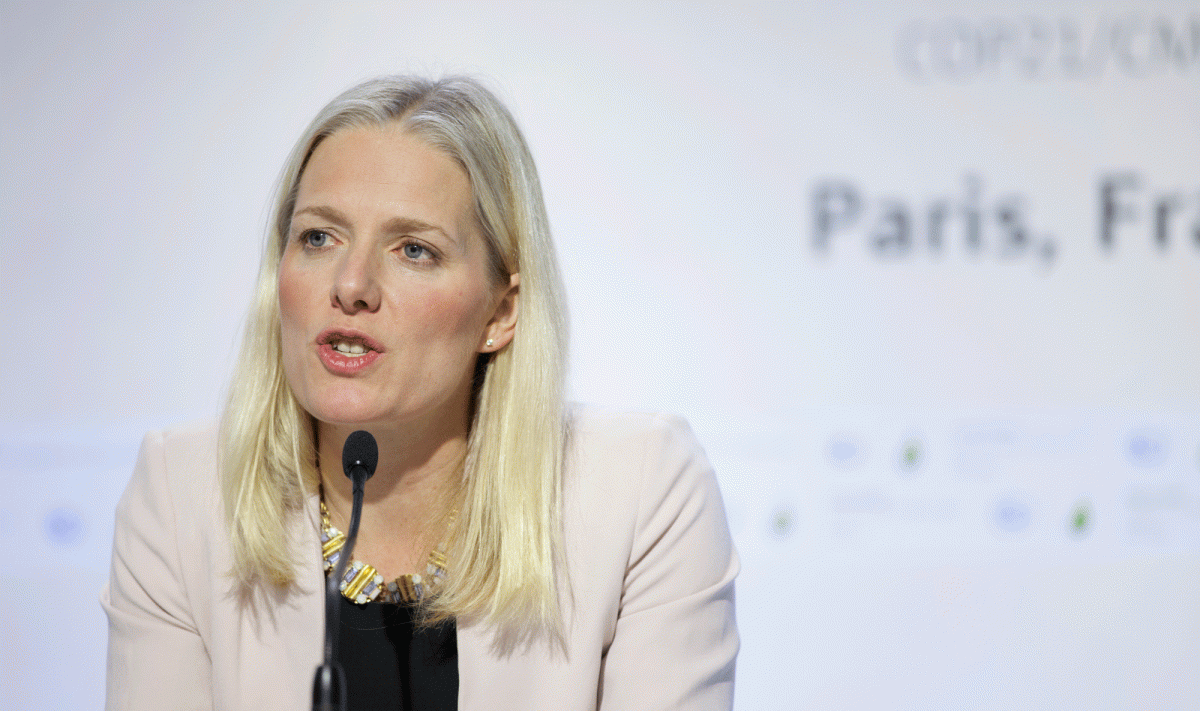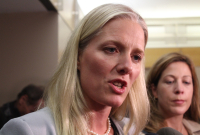Support strong Canadian climate journalism for 2025
The Liberal government is moving to phase out the use of coal-fired electricity in Canada by 2030 as part of its overall clean-energy strategy.
The goal is to make sure 90 per cent of Canada's electricity comes from sustainable sources by that time — up from 80 per cent now, Environment Minister Catherine McKenna said Monday.
Coal power in Alberta, Saskatchewan, New Brunswick and Nova Scotia accounts for 10 per cent of Canada's total greenhouse gas emissions.
Under the federal plan, provinces can choose to completely phase out coal entirely, and replace it with lower-emitting sources — such as Alberta is doing — or they can use carbon capture and storage technology, McKenna said. It also follows the U.S. presidential election of Donald Trump, who has vowed to revive coal south of the border, despite economic indicators that it is cheaper to get energy from less-polluting sources such as renewables or natural gas.
In Canada, the move is expected to reduce greenhouse gas emissions by more than five megatonnes by 2030 — the equivalent of taking 1.3 million cars off the road. This is in addition to the 10 megatonnes that Alberta's early phaseout of coal represents. McKenna said the announcement is also consistent with Canada's long-term vision as the global economy moves toward cleaner energy.
"The markets have spoken," McKenna said. "We're talking about $23 trillion (in new global clean energy investments expected in the future) and we want to make sure that we're positioned well to attract these investments."
The timetable includes an agreement with Nova Scotia to give that province the flexibility it needs to shift directly from fossil fuels to cleaner sources of electricity, rather than switching to natural gas in the interim. McKenna is working on an agreement with Saskatchewan.
"Each province is different and this is what I have learned through the discussions over the past year with provinces and territories — we need to find solutions that are win-win for everyone: a win-win for the environment, a win-win for consumers, a win-win for the provinces and also making sure that we position ourselves well for a clean economy future," McKenna said.
The announcement is one of a series of measures the federal government is rolling out in advance of a first-ministers meeting with the provinces in early December to determine a broader climate-change plan.
"Tackling climate (change) is both a challenge and a huge opportunity," McKenna told a news conference Monday. "This opportunity will attract the investments required to build the clean-energy economy that will position Canada for great success in generations to come."
McKenna said Canada is blessed with an abundance of hydro, wind and solar opportunities and 80 per cent of Canada's electricity already comes from non-emitting sources.
"This has already positioned us as a global leader. We can always do better, though."
France, Britain, the Netherlands, Austria and Denmark have all announced accelerated coal phaseouts, she noted.





Comments
Excuse me, but I'm having difficulty understanding what, exactly, this Government is doing on the climate file. Isn't this the same Government that recently approved the Pacific NorthWest LNG plant that will emit over 14 megatonnes of GHGs annually? So this 5 megatonne coal-phaseout reduction (maybe, possibly by 2030) is a case of one step forward, three steps back. Also, has anyone informed the Minister that carbon capture and storage is both expensive ($100-plus per tonne) and, so far, a failure in large-scale deployment (google "cenovus saskatchewan ccs" ). Why would any corporation pay $100/tonne to sequester carbon when they can blow it in the air and pay a much-lower carbon tax rate?
The Kinder Morgan pipeline decision will be announced in the next few weeks. This current announcement on coal is simply part of their publicity shell game--an attempt to create a narrative that this Liberal government is actually doing something about climate change. In fact they are the sock puppets of the tar sands, fracking, and other elements of the oil industry.
2030? Not nearly good enough, Catherine. Why does coal get a 14 year wind-down window? (with ongoing subsidies...) This is not leadership... this is just more ongoing corporate whoring. You can't save the Canadian West Virginia... aka Saskatchewan.